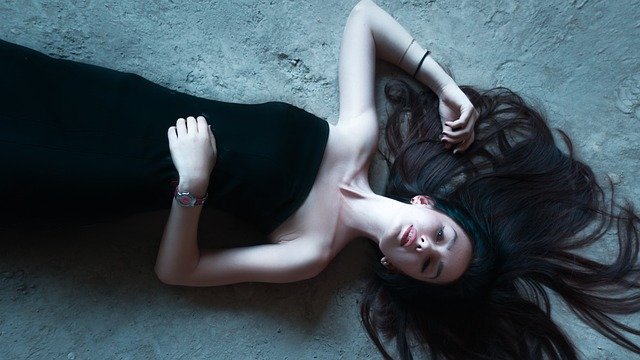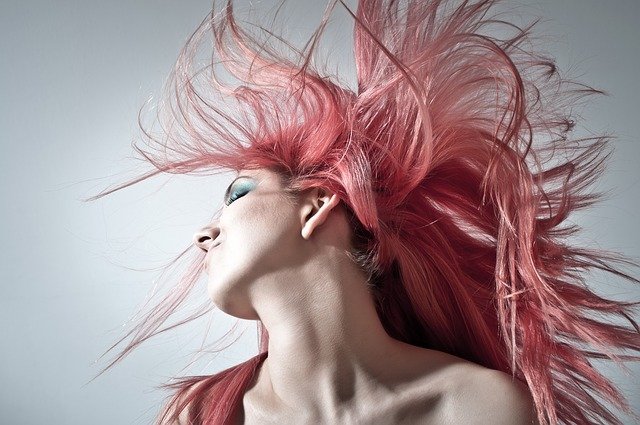Some people might think that hair loss is simply a natural process that all people experience as they age. However, there are many factors that can contribute to hair loss, and it’s not just a normal part of the aging process. Hair loss can be caused by everything from genetics to lifestyle choices to health conditions. So if you’re experiencing hair loss, it’s important to understand what might be causing it and how you can address the problem. Here are some of the most common causes of hair loss.
What Is Hair Loss And What Causes Hair Loss
Hair loss is a condition in which a person experiences an abnormal amount of hair shedding. This can happen due to a variety of reasons, including genetics, aging, hormones, or certain medical conditions. The main types of hair loss include alopecia areata, androgenetic alopecia, telogen effluvium, and trichotillomania.
Alopecia areata is a type of hair loss that typically results in patchy baldness. Androgenetic alopecia is the most common type of hair loss and usually occurs gradually with age. Telogen effluvium is a type of hair loss that can be caused by stress or certain medications. Trichotillomania is a type of hair loss that is characterized by compulsive hair pulling.
There are many potential causes of hair loss, including genetics, aging, hormones, and medical conditions. Treatment for hair loss will vary depending on the underlying cause. In some cases, treatment may not be necessary. In other cases, treatments such as medication, surgery, or lifestyle changes may be recommended.
How Can You Tell If You’re Losing Your Hair
There are several ways to tell if you’re losing your hair. One way is to look at your hairbrush or comb and see if there’s an abnormal amount of hair in it. Another way is to look at your hairline and see if it’s receding. You may also notice that your hair is thinner than it used to be, or that you’re losing hair in patches. If you notice any of these changes, it’s important to see a doctor so they can determine the cause of the hair loss and recommend the appropriate treatment.
What Are The Treatment Options For Hair Loss
There are a variety of treatment options for hair loss, depending on the underlying cause. In some cases, no treatment may be necessary. In other cases, treatments such as medication, surgery, or lifestyle changes may be recommended.
Medications that may be used to treat hair loss include minoxidil (Rogaine) and finasteride (Propecia). Surgery options include hair transplants and scalp reduction surgery. Lifestyle changes that may help with hair loss include managing stress and eating a healthy diet.
Hair loss can be a very upsetting condition to deal with. If you’re concerned about hair loss, it’s important to see a doctor so they can determine the underlying cause and recommend the appropriate treatment. There are many potential causes of hair loss, so it’s important to get an accurate diagnosis before starting any treatment.
How To Prevent Hair Loss From Happening In The First Place
There are many factors that can contribute to hair loss, from genetics to stress. While there is no sure-fire way to prevent hair loss from happening, there are some things you can do to reduce your risk.
First, eat a balanced diet that includes plenty of protein, iron, and other essential nutrients. Second, avoid harsh hairstyle products and give your hair a break from heat styling and harsh chemicals. Third, reduce stress by getting regular exercise and good sleep.
Finally, if you have any medical conditions that may be causing hair loss, be sure to work with your doctor to develop a treatment plan. By following these tips, you can help keep your hair healthy and reduce your risk of hair loss.
Hair Transplant Surgery – What Is It, How Does It Work, And Who Is a Good Candidate
Hair transplant surgery is a type of surgery that is used to treat hair loss. The surgery involves taking hair from one area of the scalp and transplanting it to another area. This can help to restore hair growth in the areas where hair has been lost.
The procedure is typically done by a surgeon or dermatologist. The procedure usually takes several hours and may require multiple sessions. There is typically some recovery time after the surgery, but most people are able to return to their normal activities within a few days.
Hair transplant surgery is not for everyone. A good candidate for hair transplant surgery is someone who has experienced hair loss in small, isolated areas of the scalp. The person should also have enough healthy hair in other areas of the scalp to be used for the transplant.
How Long Does Treatment Usually Take And What Are The Side Effects
There is no single answer to the question of how long hair loss treatment will take, as this will vary depending on the individual and the specific treatment being used. However, we can provide some general guidance on the matter. In general, medical treatments for hair loss (such as minoxidil or finasteride) will need to be used for several months before any effects are noticeable. In some cases, it may take up to a year or more of regular treatment before significant results are seen. It’s important to be patient and consistent with treatment, as results will not happen overnight.
As for side effects, these will also vary depending on the specific treatment being used. However, common side effects of hair loss treatments include scalp irritation, dandruff, and itching. If you experience any severe side effects, be sure to stop using the treatment and consult a doctor.
5 Top Recommended Hair Loss Treatment Products For Women
There are a number of different hair loss treatment products available on the market. However, not all of these products are created equal. In this article, we will recommend five of the best hair loss treatment products for women.
1. Women’s Rogaine 5% Minoxidil Foam for Hair Thinning and Loss
The active ingredient in the foam, minoxidil, helps to promote hair growth by widening blood vessels and increasing the flow of nutrients to the hair follicles. In clinical studies, Women’s Rogaine 5% Minoxidil Foam has been shown to regrow hair in as little as 12 weeks.
2. Nioxin System 4 Kit for Fine Hair
The Nioxin System 4 Kit is specifically designed for use on fine, thinning hair. The three-part system includes a cleanser, scalp therapy, and a leave-in treatment. The products in the system work together to cleanse and nourish the scalp, while also helping to strengthen the hair shaft.
3. Viviscal Extra Strength Supplements
Viviscal Extra Strength Supplements are a daily supplement that contains a unique blend of minerals, vitamins, and amino acids. This formulation helps to nourish the hair follicles and promote healthy hair growth. In clinical studies, women taking Viviscal Extra Strength Supplements showed significantly more hair growth than those who did not take the supplement.
4. Folexin Hair Loss Supplement
Folexin is a natural hair loss supplement that contains a blend of herbs, vitamins, and minerals. This formulation helps to nourish the hair follicles and promote healthy hair growth. In one study, women taking Folexin showed significantly more hair growth than those who did not take the supplement.
5. Regenepure DR Shampoo
The Regenepure DR Shampoo contains a powerful blend of DHT-blocking ingredients and hair-nourishing nutrients. This shampoo helps to cleanse the scalp and remove built-up sebum, while also helping to promote healthy hair growth. In one study, women using the Regenepure DR Shampoo showed significantly more hair growth than those who did not use the shampoo.











